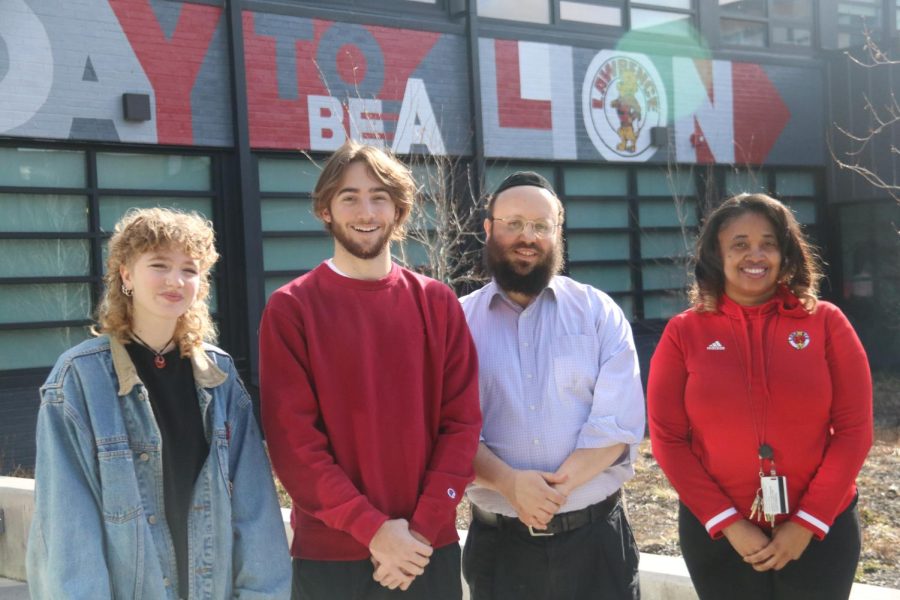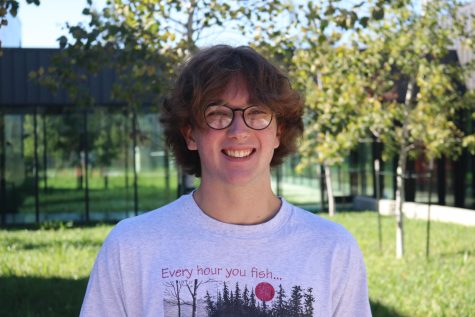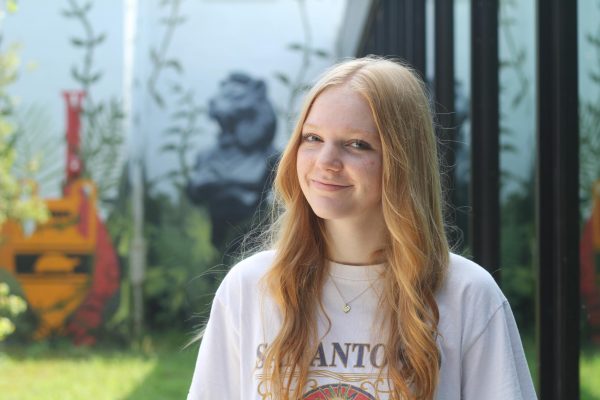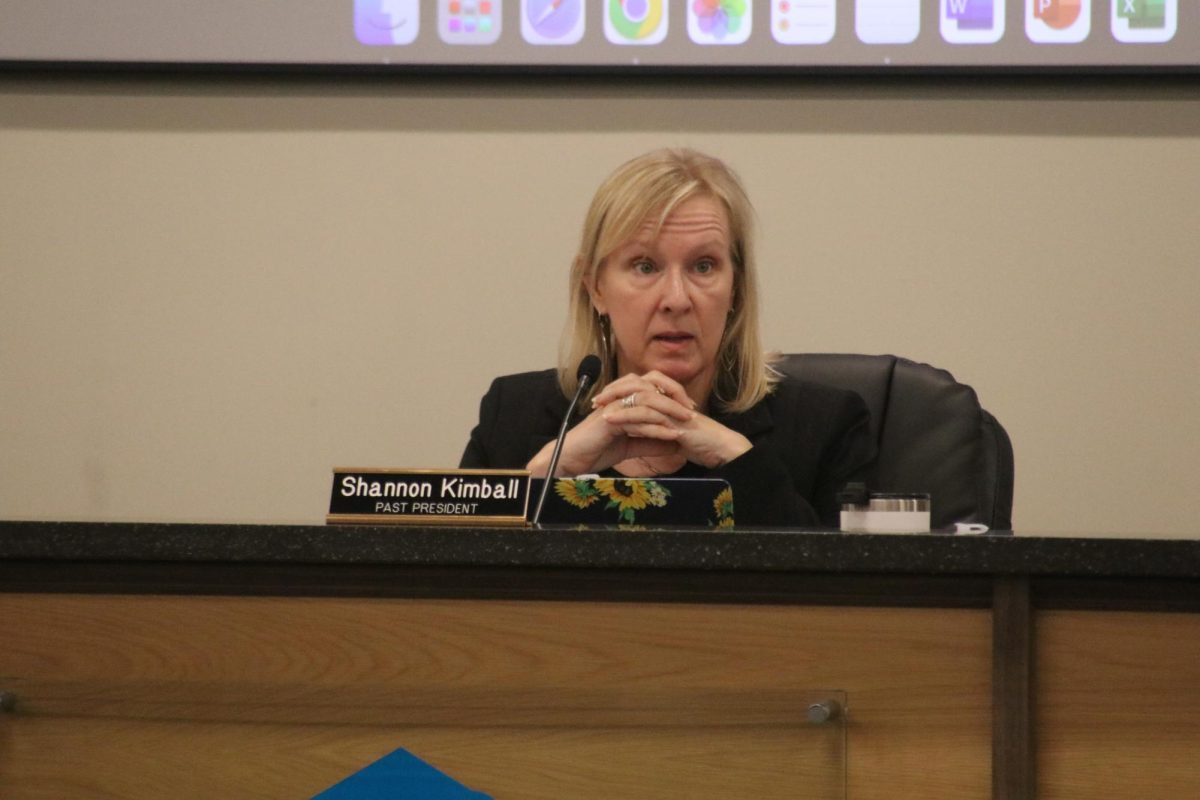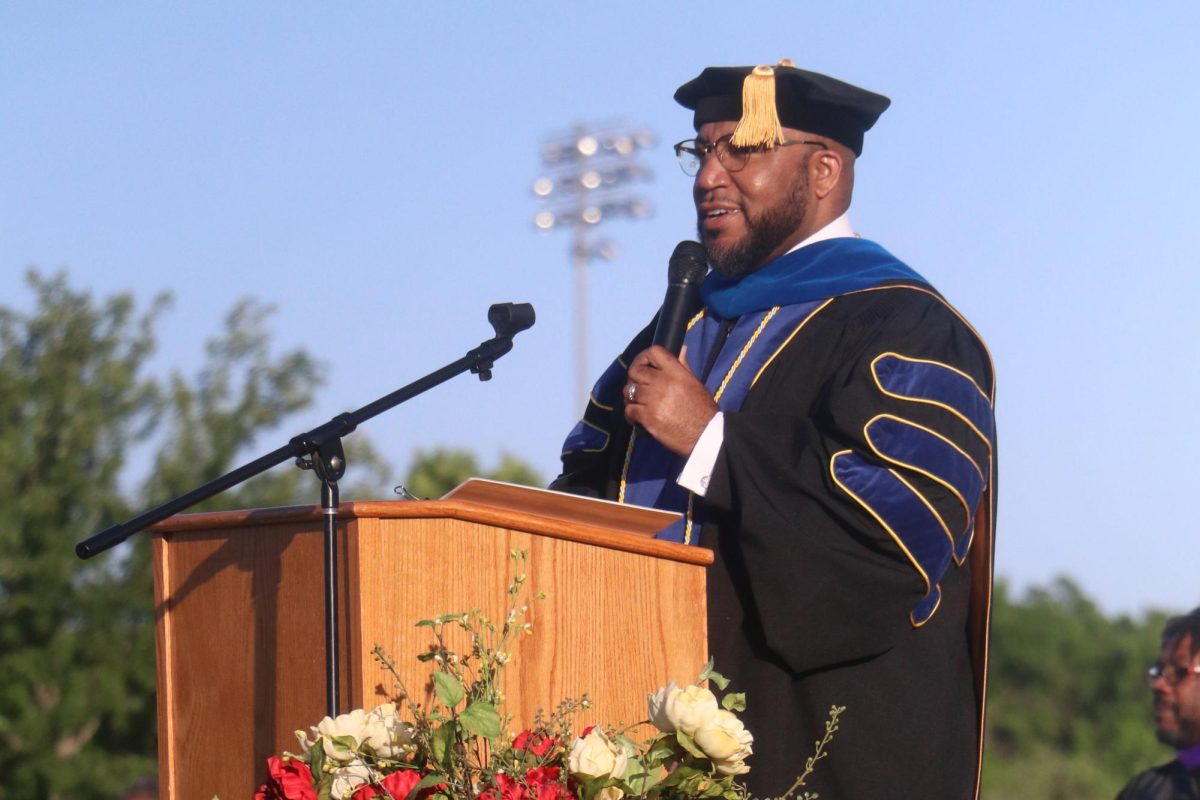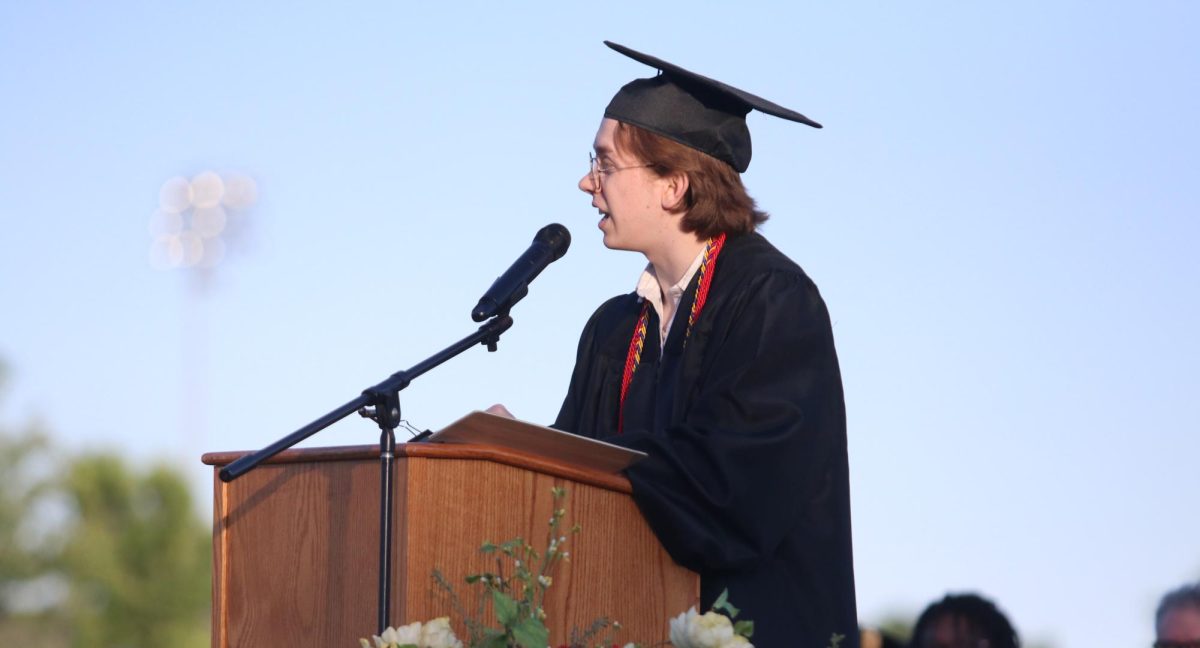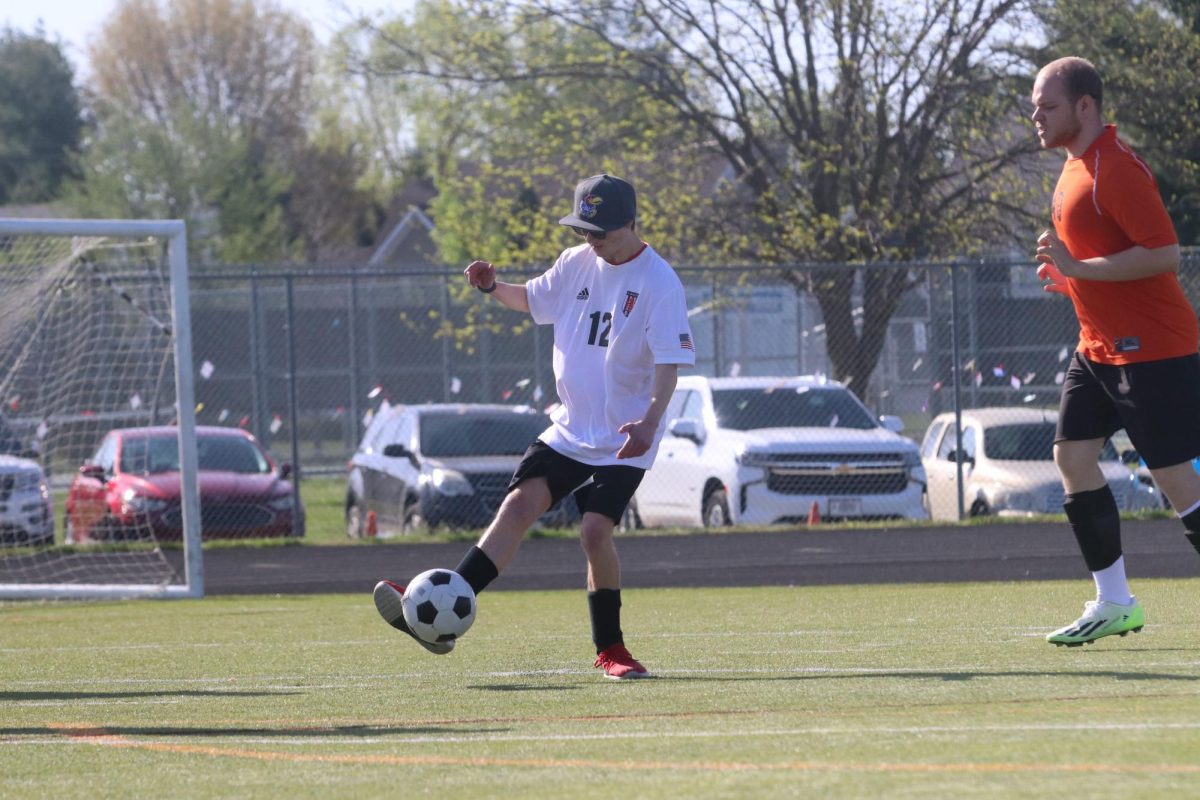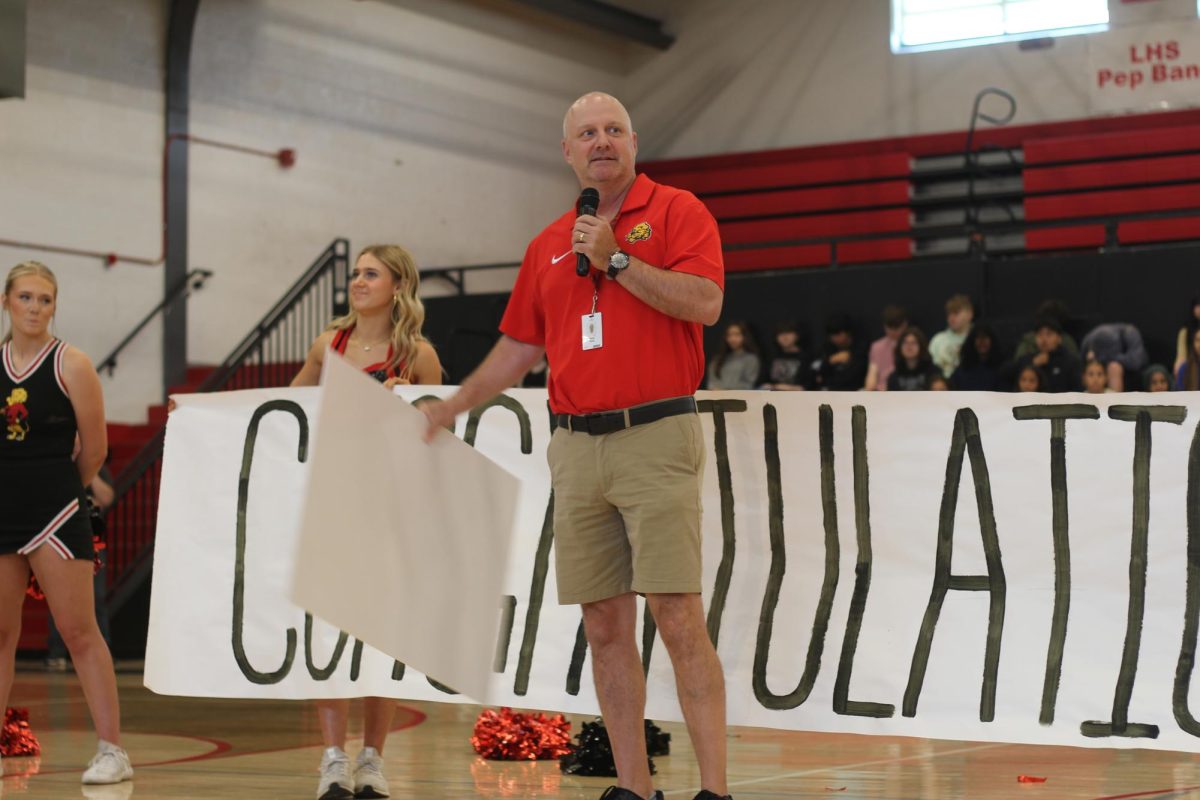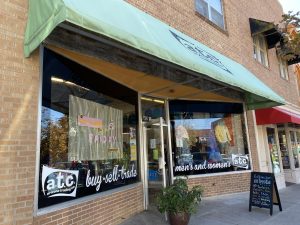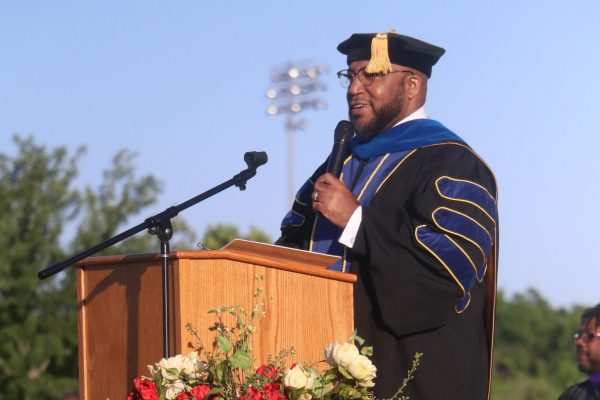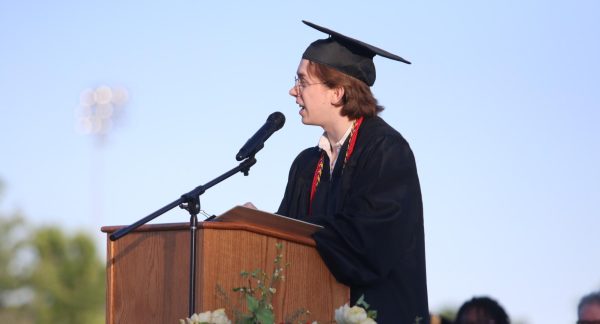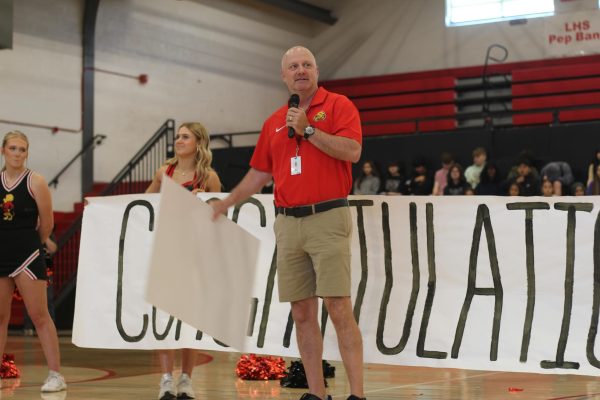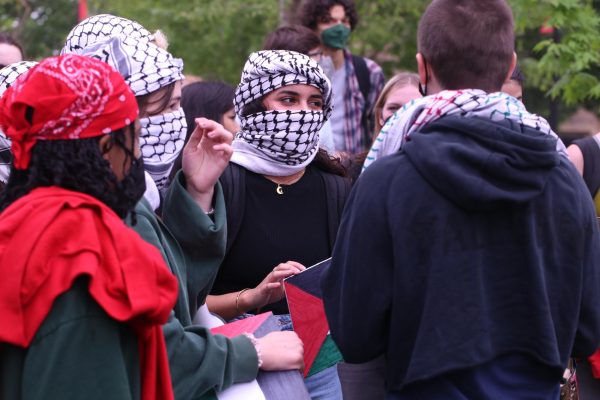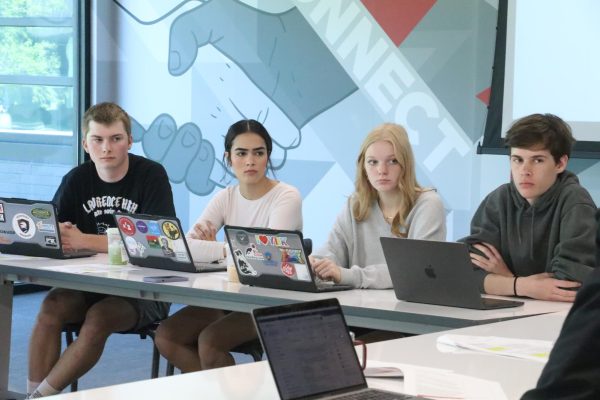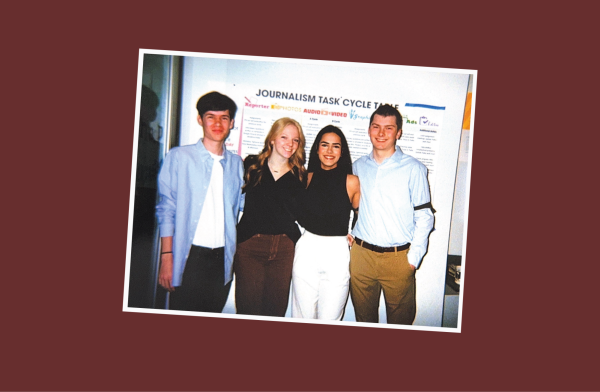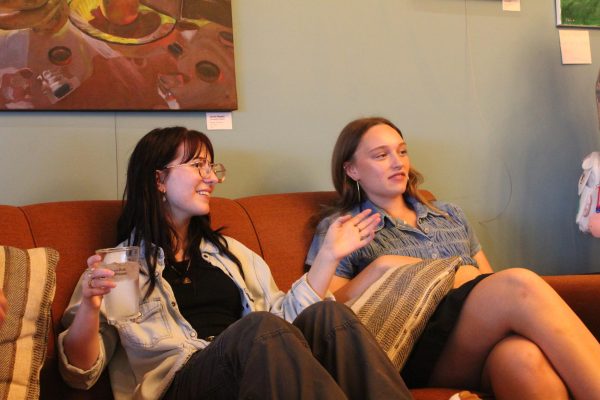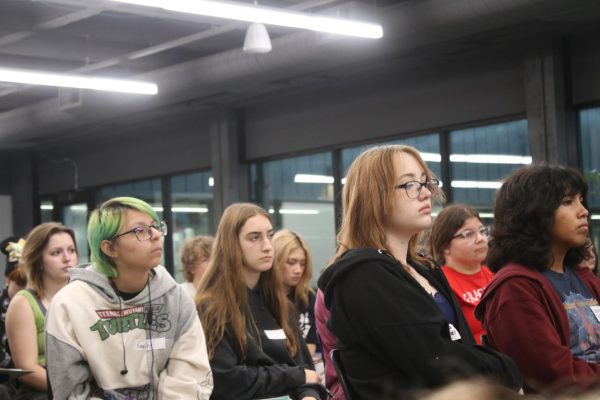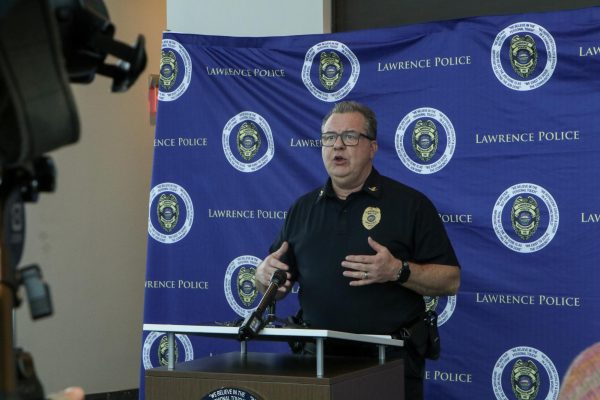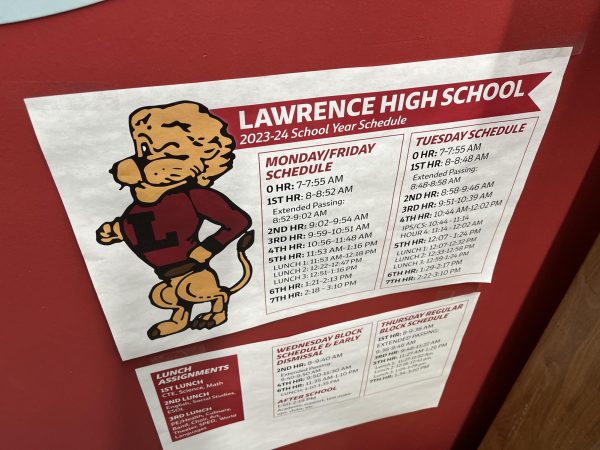Antisemitic graffiti sparks worries at LHS
Swastikas have appeared in multiple bathrooms across the school, resulting in a push for change
Students Annika Maximov and Jackson Green stand alongside Rabbi Zalman Tiechtel and principal Jessica Bassett for a posed picture, amidst reports of antisemitic graffiti.
January 20, 2023
Students accustomed to graffiti leading to bathroom closures have seen an escalation with swastikas appearing this school year.
In addition to swastikas, messaging of “Ye was right” and “I hate Jews,” was seen alongside the imagery. School administrators responded by once again closing bathrooms to clean up the hateful messaging and remediate the damage as best as possible, Principal Jessica Bassett said.
“Unfortunately we just live in a society that makes very light of hate,” Bassett said. ”We have to get to the place where, as a community in Lawrence, the state of Kansas, and as a nation, understanding that it’s the diversity that makes us unusual and beautiful.”
The messages come amid a nationwide trend toward increased antisemitism. Reporting from NPR, CNN and The Washington Post note that antisemitic viewpoints are growing rapidly.
“We have always been a community where we understand and we honor whatever diversity is here,” Bassett said. “It’s a little bit disappointing to find that someone would feel comfortable even doing something like that. It’s very upsetting, as principal, because I think Lawrence High always prides itself on being very inclusive.”
Despite the shock, Bassett sees the incidents as an exception, not the rule.
“I think that whoever it is, they are the minority they’re not the consciousness of this school, you know?” she said.
Rabbi Zalman Tiechtel is a leading figure within the Jewish community in Lawrence. As the leader of the KU Chabad Center, he stands as a representative of Jewish life.
“It’s all about the education,” Tiechtel said. “There’s another very important issue that I think is missing in education today in society, especially with the youth, and that is that. There are two reasons why people do this. One is ignorance, right? Another one is it’s a way of expressing defiance.”
LHS is no stranger to seeing students commit vandalism — notably suffering from the Devious Licks trend last year — but these actions are seemingly driven by something bigger now.
“It’s not even about its political affiliations,” Tiechtel said. “A swastika to a Jew represents 6 million of my brothers and sisters who are dead. Just imagine that. Millions of my flesh and blood, who the curtain ended. It’s very, very, very deep. Even for someone like me who’s not directly related to a Holocaust survivor, the image is very painful because it represents hate.”
The hatred represented by these symbols stems from a variety of sources.
“I think that there are different kinds of hatred. There is, you know, I like to call it logical hatred. No hatred is logical, but they convince themselves it makes sense,” Tiechtel said. “I don’t like you because of this and this and this, but then there’s illogical, irrational, not based on any kind of ideology. And that’s what I believe is what’s happening now. Unfortunately, there are places in the world today and there were times in the past when people did swastikas because they hated Jews for a reason. I think now a lot of this is just an expression of defiance or an expression of trying to show how gutsy they may be. It’s nonsensical, and it’s not something you could dialogue with.”
Tiechtel maintains that accessibility is of utmost importance in situations like this. He suggests the school invite a speaker to visit with students.
“There’s got to be access,” Tiechtel said. “Finding creative ways within the framework of a public school setting to expose these kids, maybe film, maybe it’d be documentaries. The teachers have to be cognizant and aware of the role they play in this area.”
For those who have shut their minds to experience and are set in their ways, Tiechtel believes that creating their acceptance is more of a feat.
“Those kids who don’t care? They’re just not interested. That’s the real challenge,” Tiechtel said. “Those are the ones that we have to find a way to engage them. People need to be exposed to the emotional side of it. If they’re exposed to a speaker who was maybe the victim of hate, that can be a very transformative experience.”
The victims of this hatred at Lawrence High say their needs to be a bigger response.
“It’s not only like sickening, but also terrifying,” said junior Annika Maximov, who is Jewish. “I think the swastikas in the bathrooms happened around Hanukkah, and it feels like there’s always a rise in antisemitism around the holidays. It feels very underrepresented in the media.”
As a high schooler herself, she sees how outside forces can influence younger audiences.
“In the media, people like [social media influencer] Trisha Paytas are making a mockery of it and making it OK to make jokes about it,” Maximov said. “The whole Kanye West situation is especially awful. People look up to those people as influencers and role models and then take anything they say as God’s word, in a sense. Young people are impressionable and will want to imitate them and spread that, even if that’s not what they mean.”
Flooding people with more accurate messages is important to combatting the hate, Tiechtel said.
“The message I tell my students is, louder, stronger, prouder,” Tiechtel said. “You know, you try to crush us, we’re going to get up even stronger. There’s a sense of urgency now from myself and from anyone who has the ability to influence and inspire to do something about it. I don’t think we could ignore it. These people have a strong following. And could have a very big impact on young people as they evolve and they could make certain things become the societal norms.”
New experiences and viewpoints are the path forward for community leaders to change the way that antisemitism is recognized as an issue.
“We’re talking about targeting those people that don’t have exposure. Let’s give them exposure,” Tiechtel said. “The change we’re going to create is education, exposure, knowledge.”
Bassett hope students will use this learning to hold their peers accountable.
“The other thing is we need more of our students to get on board when we see this type of mentality going on,” Basset said. “If they would just let a teacher know so we can stop especially when It moves into that realm of discrimination.”



